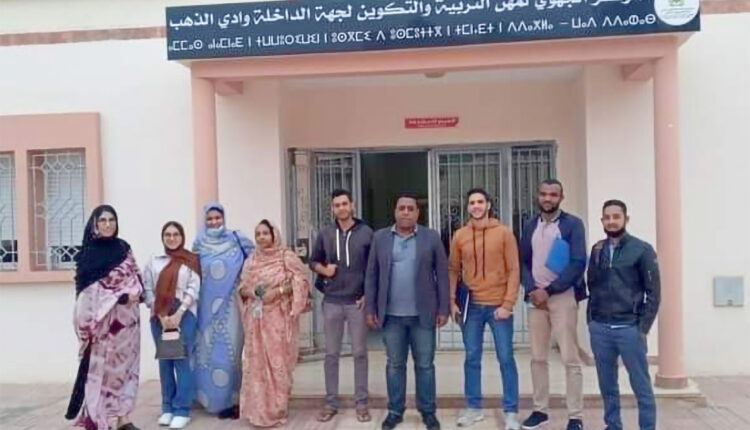Dakhla – Missouri held an Online Exchange Program
Director of Dakhla's regional institute, Sidi Mohamed Oubit, provides insight on the virtual exchange conducted with MSU.
A great initiative has been taken recently in order to raise more awareness across the borders. In light of COVID-19 Crisis, an MSU Professor found the way to take advantage of the Crisis, which had affected billions of people around the world, in a way that would help spread knowledge and cultural awareness.
In collaboration with Mamiya Hamdy, a professor in South Morocco’s Dakhla, a virtual exchange program was held between Dakhla and Missouri State’s students, MSU Professor McCafferty-Wright stated that it was an opportunity to “get a little bit closer”.
“We just completed our first official virtual exchange it was four weeks long and by the accounts, I’ve read so far it was the highlight of our students’ semester,” McCafferty-Wright stated.
Director Sidi Mohamed Oubit provided his great insight on this program showing that the online program’s aim is “two-fold”, since it “links American teachers to Moroccan ones”
“First, it enhances the pedagogical side of the teacher by adopting more interactive and engaging ways of teaching value for teachers. Second, it is an opportunity for teachers from both sides to mingle with each other, make acquaintances and exchange culture.” Director Sidi Mohamed Oubit stated.
The director further expressed his huge thanks to professor Jennice McCafferty-Wright from Missouri State University for making this program possible, as it was thanks to her that such an initiative could have been achieved.
He added that the program goes hand in hand with the teacher’s profile desired, since the profile must be one of openness and tolerance of others.
The director also showed that his institute’s teachers must be able to provide all answers to students’ questions, which was highly taken into consideration while initiating the Program. In fact, 8 teachers from Dakhla had gotten the opportunity to participate and benefit from this exchanges edition.
Mamiya Hamdi also spoke of the exchange program, stating: “What I like most about this program is it’s not only about preparing lessons and teacher stuff we make friendships there, we learn about each other we talk about culture.”
This initiative had impacted both the teaching area and the students from around the world greatly. An exchange program participant, Missouri state student Makenze Johnson, expressed this program’s effect by mentioning that she now holds interest in visiting Morocco and her friends there: “I’m like why do we have to end this there’s so much more to learn, now my bucket list is to go to Morocco and just experience their culture and meet my friends that I met via Zoom.”
This program made a great impact on diminishing stereotypes, intriguing curiosity, and creating cultural awareness, and Missouri State is in in fact only one of 17 grantees to receive funding for a virtual exchange program.
Director Sidi Mohamed Oubit himself expressed how greatly he felt about the program: “I would simply say that we need more editions of the program, and we do hope that it will change into real face to face exchange program.”


